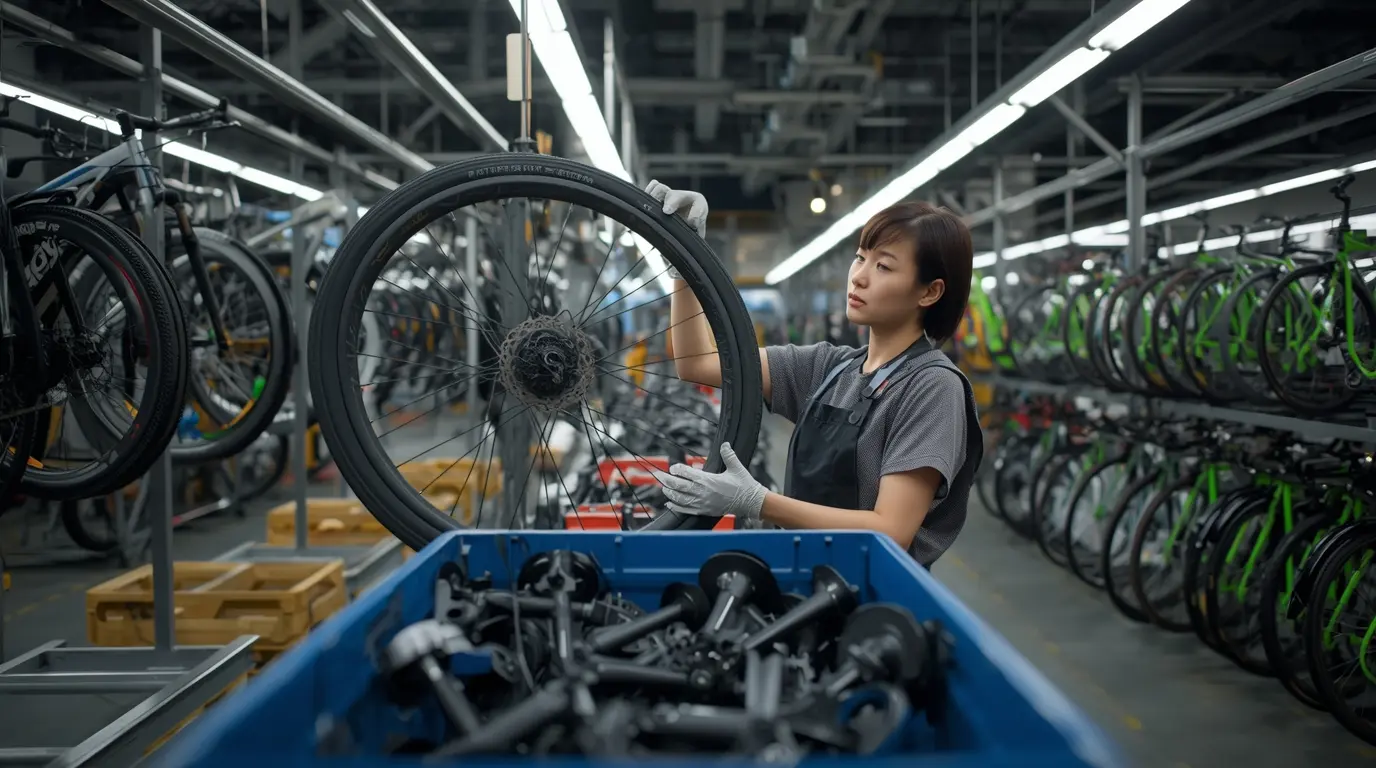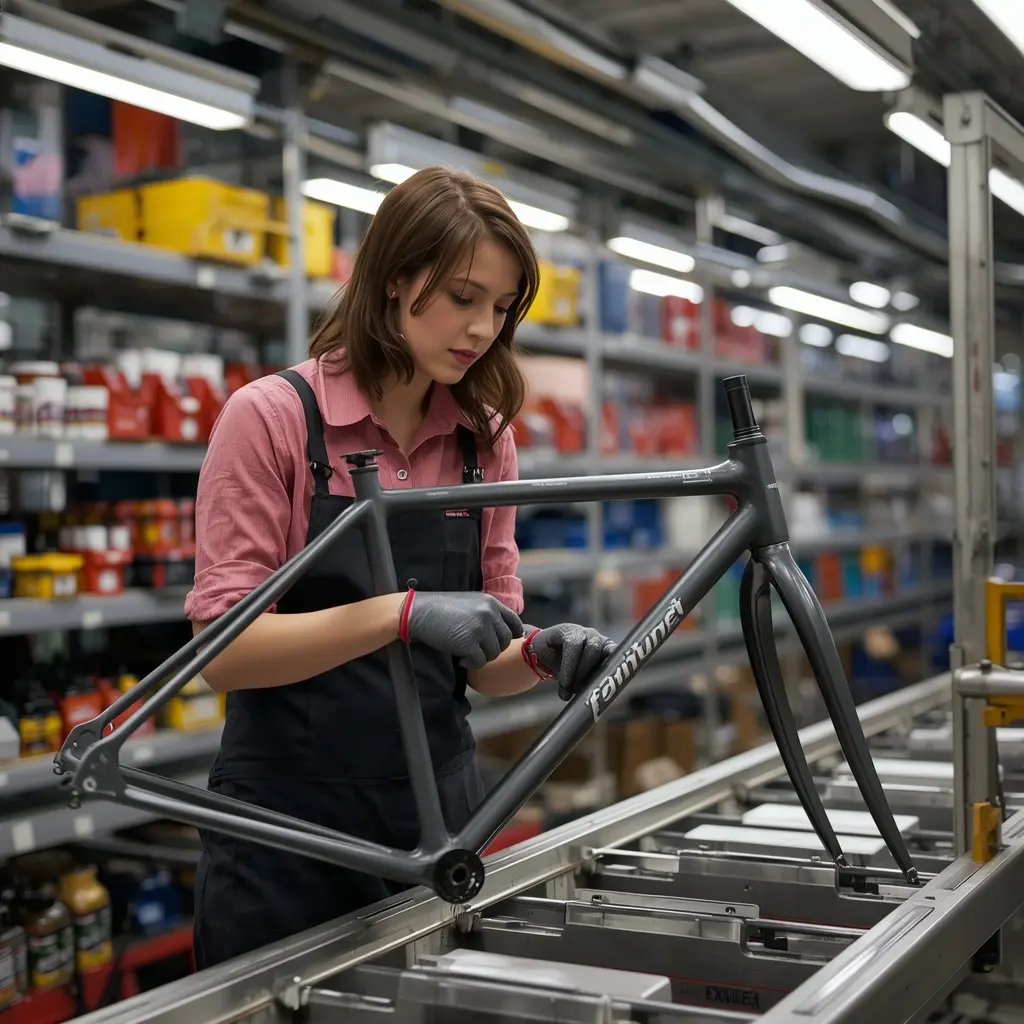
Giant Businesses and global trade spectators alike have been astounded in recent weeks at the enormous delays in the processing of imports at U.S. ports due to an unprecedented customs-related ban. It is meant to curb unsavory practices and safeguard the U.S. economy, but it has put an enormous burden on customs agents, logistics specialists, and the economy as a whole.
In the middle of all the chaos, one might ask what a Comany, bike has to do with anything. As surprising as it may seem, the answer is that it is relevant to the discussion. This blog covers the narrative, explores the dynamics, and yes, the bike , bike motif is included more than one may hope.
Now, let’s get pedaling so that we can get to the specifics.

The Ban that Split the Supply Chain
Recently, the U.S. has issued new customs policies without any due process. These policies have been described as an almost blanket refusal of some categories of goods which, upon landing, are subjected to heavy scrutiny. A considerable number of container goods have recently come to a standstill at source ports due to an acute global trade paralysis.
Such delays in the processing of imports are a serious issue. They constitute an acute discontinuity in the movement of goods on a global basis; with ships lingering, and boxes imprudently stacked without order.
Unfair subsidies, dumping goods, IP theft, and these sorts of issues are becoming more and more relevant to the U.S.
Because of these issues, some imports are now documented more thoroughly, and proof of origin as well as tariff assessments are more rigidly complied with.
Automotive parts and consumer goods companies face the brunt of these issues and are in a state of panic, as the geopolitical situation does not paint a rosy picture.
There is an argument to be made that these actions are more of a strategy to reclaim dominance over imports, as opposed to an issue of fairness in trade.
The Phrase Itself “Taiwan’s Bike”
In order to avoid thinking that “bike” is simply a random juxtaposition of two words, let me clarify. “Taiwan’s bike,” in the case of our analysis, represents a well known international bicycle brand that is made at a massive scale, along with other global goods, and is subject to the same trade restrictions as microchips and other gadgets.
Now, how does this all relate to the current situation at hand?
If a Taiwan’s bike is manufactured at a well known international company that is located outside the US, and they try to “ship” bike parts and frames to the US, what happens is that the shipment is held at customs and there is a long and tedious process regarding documentation.
In this case, a lot of imported Taiwan’s bikes use global supply chains for cross border trade, as they have frames, parts made out of carbon, and other sophisticated gadgets. The world “gadget” fits perfectly as well, as there is a bunch of “sensors” that use cross border trade as well.
Retailers having bike products or even aftermarket parts might experience coming shortage of inventory alongside price increases, or even worse, order cancellations.
Hence, each time the phrase ‘Taiwan’s bike’ comes up, think of imported goods ‘garnished’ with ‘thin’ connecting red tapes of border delays like electronics, or even garments.
The Scale of Disruption
Port Congestion & Shipping Delays
USA ports are facing massive delays in bike imports. Ships waiting to dock, the yard packed, and containers waiting in queue. The Taiwan’s bike container with your fresh order is probably never coming.
Rising Costs
Detention fees, storage fees, demurrage, even the ‘lesser’ rerouting, all accumulated. Some importers do, but in the end sell to consumers ‘cheap’ bike containers. In paper works, the delays are significant.
Supply Chain Fragility
Just in time delivery is the principle of modern supply chains. A factory fitted bike without a missing sensor, the production line comes to halt with the parts, not only in delays but in final goods, consumables and accessories.
Consumer Impact
Users feel the impact, whether that be on e-commerce platforms, or on the physical bike shops. You might order a Taiwan’s bike frame or accessories, but the order might go missing – or the order delivery might go above the predicted delivery time.
Strategic and Business Changes
Some companies might decide to move the manufacturing or warehousing facilities closer to the consuming markets. Others might decide to vertically integrate and decrease the use of imports. The giant bike industry would be more likely to advance local production, nearshoring, or Customs-Proximate Export Processing Zone with local manufacturers to avoid customs exposure.
Trade Policy Changes
These U.S. policies do not exist in a vacuum, they are integrated with a more recent trend of increasing friction on trade with tariffs, reciprocal tariffs Dutch import duties on American exports, and other tensions with U.S. major trade partners. The U.S. trade embargoes has increased friction on other countries trade policies too.
For example, as a result of recent U.S. tariff changes, bike imports of tech goods were delayed for customs clearance in excessive quantities – small parcels in the customs.
There are also reports that Chinese customs are now holding U.S. goods awaiting scheduled enforcement of import duties.
The Economic Times
In this scenario, imports of Taiwan’s bikes are competing with other trade volumes of electronics, automobiles parts, machineries, and other high trade volumes electronics under increased scrutiny.
Resolving the Delays
Take full control of global imports for giant, bike goods. Consider the following practices.
Expand the document control system: strengthen the document control system including proof of origin, supply chain classification, tariff classification, and traceability along the supply chain.
Manage complex supply chains: avoid single points of failure by having multiple suppliers in different countries.
Hold inventory closer to the market: buffer against delays by holding either parts or finished giant, bike inventory in the country.
Proactive supply chain risk communication: inform your customers about possible delays in giant imports in a timely manner.
Liaison with or use government channels: the industry associations can advocate for the streamlined processing of complex border procedures for strategic items like giant, bike parts.
Use bonded zones or free-trade zones: when the goods lie in a bonded zone the customs burden can be lifted until distribution.
Counterfactual illustration: The Giant, Bike Case
Take, for example, a fictional global bicycle brand, Taiwan’s Bike , that imports motors, premium carbon frames, and electronics into the USA.
The container arrives in Los Angeles. However, due to new customs procedures, the giant, bike parts are withheld due to incomplete documentation.
The warehouse pays demurrage while the parts are unassembled. As a result, the completed giant, bike units are left in limbo.
Dealers anticipated shipments of giant, bike models and were advised of delays. Customers who ordered the bike are witnessing the date of delivery being pushed further out.
To make up for this, Taiwan’s Bike Co may relocate the production of future orders to Mexico or Canada, expecting quicker clearance. Or indicates investment in the U.S. production of the giant, bike frames to reduce burden of cross-border trade.
This shed light on how the a giant, bike operation becomes linked to trade policies of the country.
Reference Website: https://edition.cnn.com/2025/09/25/business/giant-import-delays-us-customs-ban-intl-hnk
For more news updates, visit our home page.





